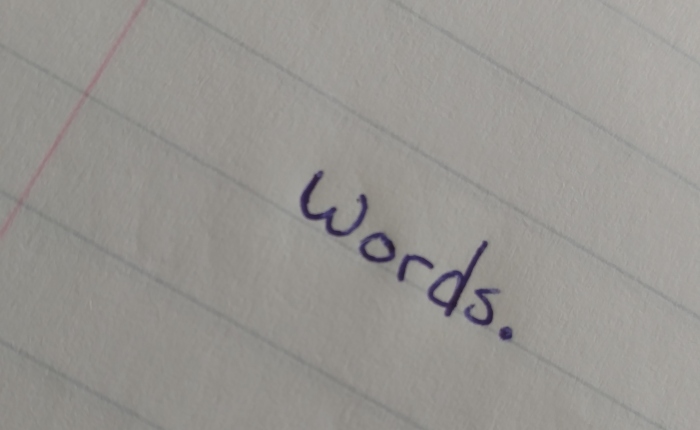There’s a line in the classic movie, Singing in the Rain, where one of the characters briefly thinks he’s getting fired from his job. His response is, “At last, I can start suffering and write that symphony.” He immediately learns he’s not losing his job and says, “As last, I can stop suffering and write that symphony.” If you talk to my friends and family, they’ll tell you that I have incorporated this quote into the very depths of my personality. Not only do I think it’s hilarious, but it also shows a good life perspective.
I’ve had a lot of time off from working. Which means I’ve had a lot of time to write. So my personalized version after quitting my job, would be, “At last, I can stop suffering and write that novel.” Which is essentially what I’ve been doing with a lot of my time. I spent a few hours with my writing partner discussing my recent work and figured out a lot of edits. I’ve also had a lot more time to figure out my writing process. I’ve been writing for my entire life so you’d think I would have a whole system down by now.
Unfortunately, that’s not really how it works with creative endeavors. I have always been a feast-or-famine kind of writer. I go through times where I am writing constantly. I will start dozens of new projects, progress in bigger works, reading 3 books at once, and just generally always moving on some kind of writing. But when the famine would hit, it would be no writing, little reading, nothing new, not touching old projects for weeks or even months. I got to a point in my life where I was spending months and months in the famine stage and only a few weeks at a time in the feast stage. I decided that needed to stop.
Quitting my job and taking a position with significantly fewer hours has finally given me time to figure out what that means. While I am disappointed to not be making as much money as I was before, I am really glad to have time to figure things out. I published a writing prompt book because it’s something I’ve wanted to do forever but didn’t feel like I had time. I also, as said above, figured out my writing process.
Which is something I didn’t realize would be so freeing until I found it. Because I used to berate myself over not getting enough writing done regularly. I would tell myself to just write. Just put something down on the paper. Because that’s what I was told all through college. Get something down, just do the first draft, you can edit later. The vast majority of writers tell everyone who wants to write that they need to get that first draft done. Just write it. No editing. Creatives tend to be part of the perfectionist crowd, so half the struggle is often getting past your own insecurities. So it’s not bad advice. I think that’s incredibly valuable for new and veteran writers. I still do it for shorter works. But what I’ve discovered now that I’ve been able to write regularly without as much pressure on me, is that it doesn’t work for me for writing novels.
The editing process is A LOT. It’s usually the more time consuming part of writing novels. And for me, it’s overwhelming. Since I’ve had better time to reflect on my writing, I’ve realized that the vast majority of my long projects that have been abandoned, were abandoned when I considered editing them. I have pages and pages of unfinished novels. Some are 20 pages, some are over 40, a couple are longer than that. I followed the formula: write first, edit later. But then I’d always leave them behind. Because the idea of fully editing 30+ pages of a story was too overwhelming to me. I would dutifully sit down, start reading through it, realize there was a detail that needed to be changed and that I’d have to find every. Single. Mention. of that detail and I would give up. It was always too much. The thought of heavily editing 40,000 words all at once makes me physically sick.
So I broke the rules. The more I thought about it, the more I realized that I have never actually followed the rule anyway. Which was an epiphany. I have always edited as I wrote. And it drives me absolutely crazy to not do that. Now I have almost 20,000 words written of a novel and it’s all been edited multiple times already. I feel really good about the story. I like the way the characters are set up. I like being able to sit with my story without feeling like I’m moving too slowly. I like being free to go back and fix things without feeling guilty for editing “too early.”
I especially like the idea of having a more finished product by the end of the story. I’ll still need to edit it at the end. I’ll still have to go through the 40,000+ words of this novel to make sure it’s good. But I (hopefully) will not have to stress over having to make every possible edit.
I finally stopped suffering at a job that, while making me money, was constantly stressing me out and overworking me, and finally managed to work on my symphony. I also managed to figure out the best way for me to write that symphony. I look forward to finishing my novel. I really look forward to seeing how this writing process works for me over time. I haven’t switched things up in a while and I haven’t written anything completely devoid of stress since probably high school. I can’t wait to get this book out, then the next one, and the next one (it’s not a series, I’m just excited for the future in general). It’s taken many years away from college, but for some reason, now is the time I finally feel like I’m on my way as a novelist.
Now just to keep up the momentum!






